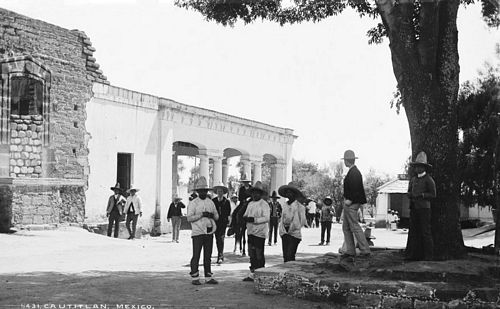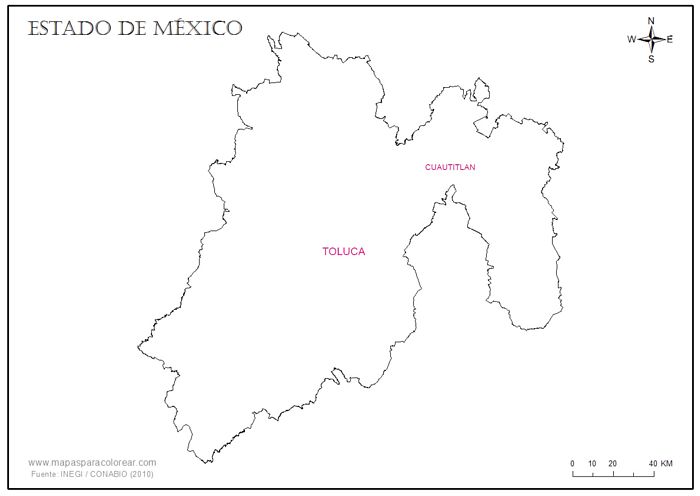Company scrip
Cuautitlán

Cuautitlán
(a photograph of William Henry Jackson, c. 1888)
La Aurora
In September 1913 it was reported that the "La Aurora" yute and textile factory, in Cuautitlán, Estado de México, was making loans to its workers by means of fichas that could only be used, at a discount, in the company’s store (tienda de raya). Adalberto A. Esteva, director of the Departamento del Trabajo, having received a complaint, dispatched an inspector. The factory owner, Felipe N. Robertson, said that it did not pay with fichas but en efectivo and that the store that made the loans belonged to an individual who only rented space from the company. That store made the loans by means of fichas drawn on each worker’s account and the factory then covered the debts on paydayEl Independiente, 14 December 1913; El Independiente, 16 December 1913.
After talks the company and representatives of the workers agreed the following accord:
1. - For once and the last time, the "La Aurora" factory will recognize and discount when paying wages, the loan or advance that the owner of “La Vizcaína” store had made, of a quarter of what the workers usually ask for.
2. – The factory will no longer acknowledge the loans from that store and, as a consequence, will not make any reduction to wages.
3. – In order for the storeowner to recover the amount of the loans received to date by workers, the factory shall reduce the pay of a workers by twenty per cent until the total amount of the debit is extinguished.
4. – The fichas and any other conventional means of representing coinage are completely supressed“1o - Por una sola y última vez, la fábrica “La Aurora” reconocerá y descontará al entregar la raya, el préstamo o anticipo que esta semana haga la dueña de la tienda “La Vizcaína”, de una cuarta parte de lo que acostumbran pedir los obreros.
2o – En lo sucesivo, la fábrica no reconocerá ya los préstamos de dicha tienda, y, por consiguiente, no hará la reducción respectiva al efectuar el pago de los salarios.
3o – Para que la dueña de la tienda pueda recuperar el importe de los préstamos que hasta la fecha han recibido los obreros, la fábrica rebajará a éstos un veinte por ciento del importe de sus rayas hasta extinguir el total del adeudo, en el cual deberán comprenderse todas las cuentas pendientes de los operarios. (Estos habían consentido aun en mayor proporción de pago).
4o – Quedan totalmente suprimidas las fichas y cualquier otro signo convencional representativo de la moneda”.
The next day the inspectors from the department, Manuel Ortega Elorza and Miguel G. Casas, presented the agreement to a meeting of workers for their consent and it was acceptedEl Diario, Año VIII, Núm. 2,080, 17 December 1913; El Independiente, Año I, Núm. 302, 20 December 1913.
It is not known if any of this generated items that could be classified as paper money.

